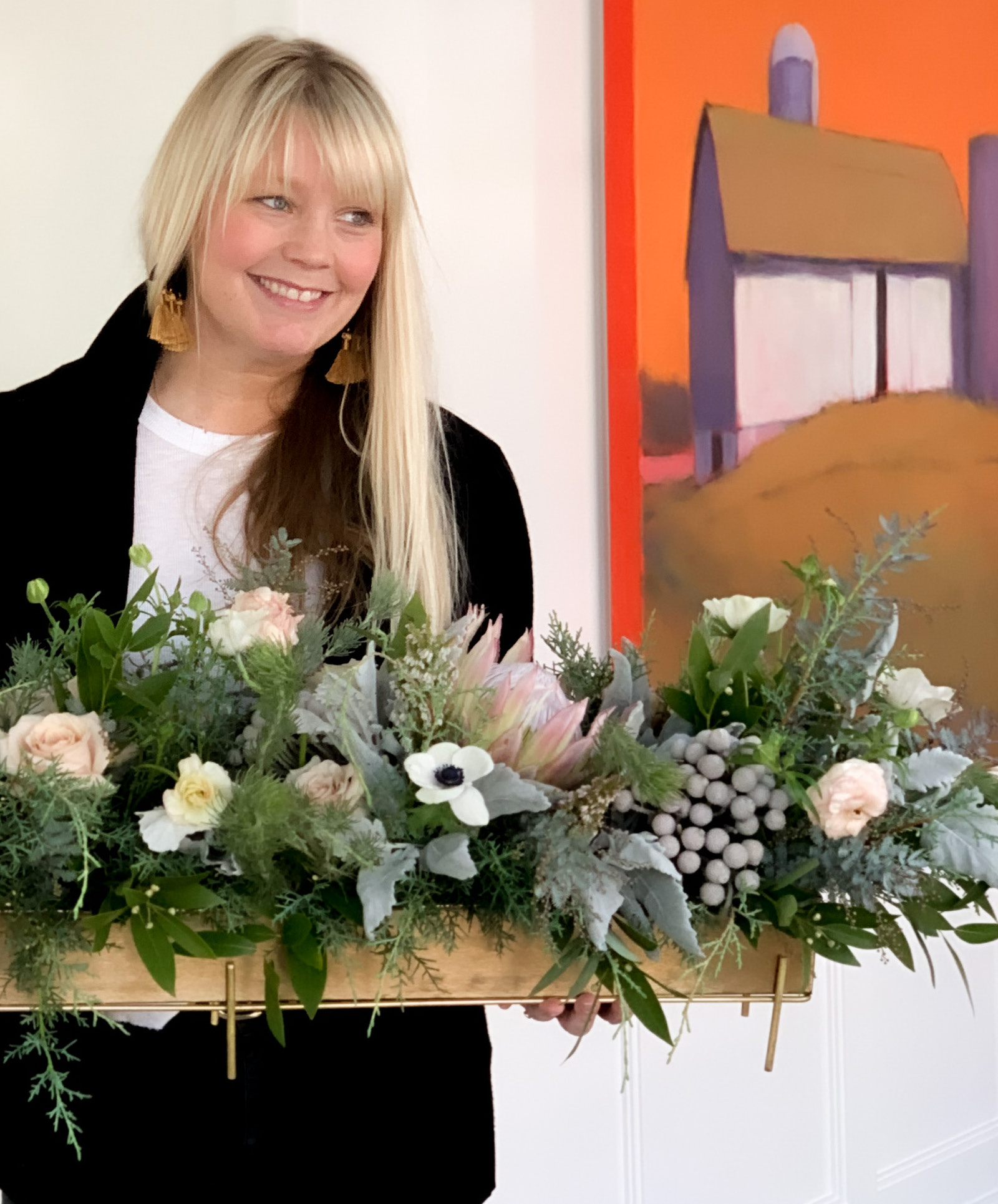
After the walls are coated in coverings, the rugs rolled out, lighting and furniture carefully installed, and books and accessories styled to accent each surface, it’s time to add the layer that brings life and presence to a room: flowers. Fresh flowers add an extra and very personal final layer to interior spaces.
When I need flowers, I often turn to my friend, Maya Boettcher. She is the founder and owner of Wildflower. The sliver of a shop on Ingersoll is bursting with live beauty. Pop in and pick up a bunch of stems from the grab-and-go fridge to foster your creativity at home. Or if your calendar is marked with a special occasion, find Maya and her team for a floral beauty that is sure to bring a smile. Maya’s flowers regularly end up in my own home and those of my clients to enhance the interiors that I create.
If you don’t know about Wildflower quite yet, meet Maya. And now, when you see a stunning and unexpected looking floral arrangement around town, you’ll be able to put a face with a name.
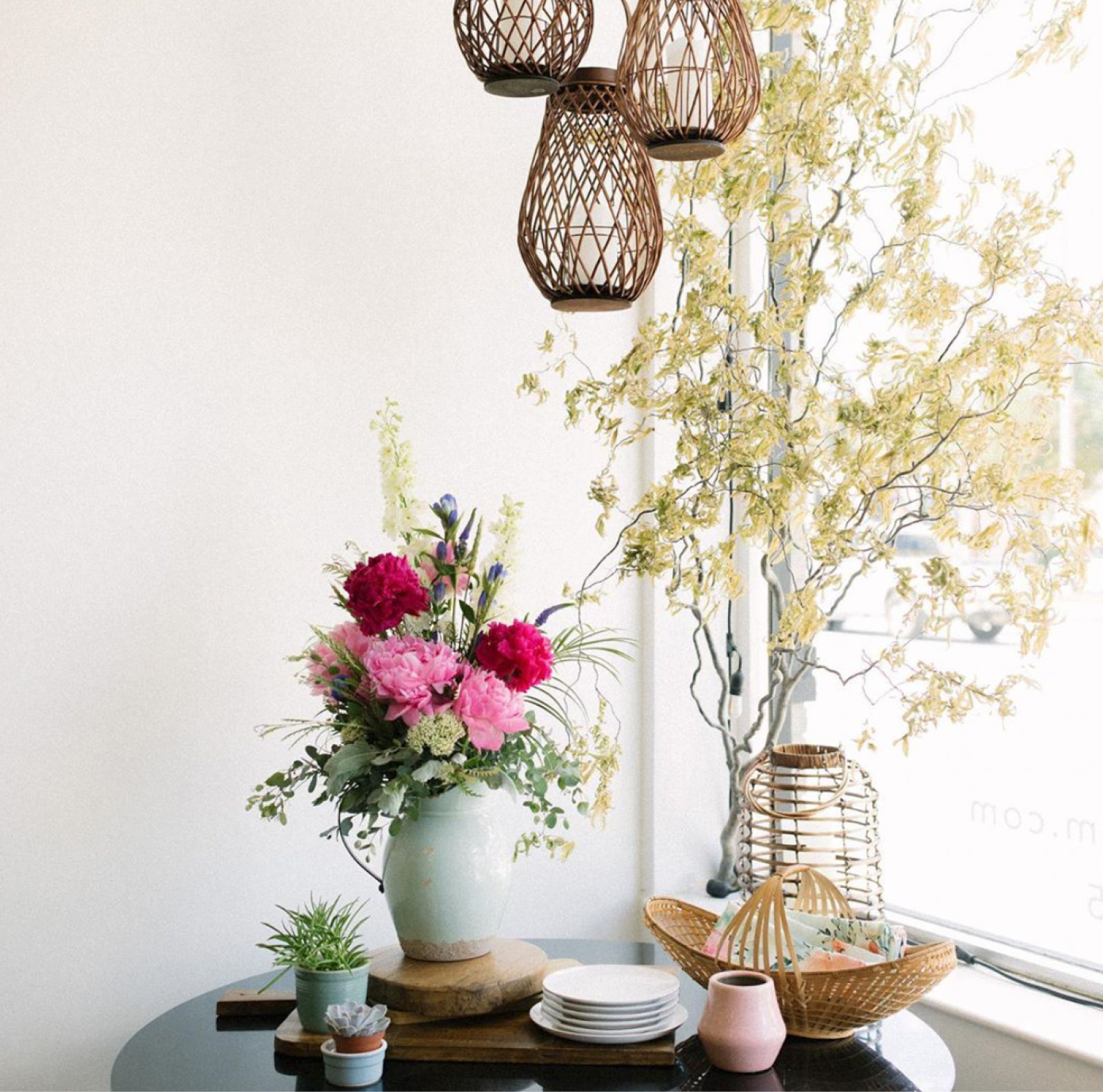
Maya, you just celebrated the second anniversary of your shop. Congrats! That leads to the question, how did you get to this point of success?
I have an art background and fell into event planning. I was a creative who liked to procrastinate, so the deadline factor was well-suited for me. So was the hustle and fast-paced design schedule.
Fast forward to my time at Boesens. There I sold weddings. We sub-contracted linens, environments, all of it. Oftentimes, clients were confused during consultations. They needed education and information. I would step in and help with planning and coordinating. Eventually, I started to own and operate that part of it, because I understood all of the vendors and had a vision.
Once I was specifically being hired to plan events, I decided to go out on my own. Event design tends to be low on the priority list for many people. The logistics matter more. Coordinating weddings ended up being the perfect job for me. By this point, I started having children, and my husband and I wanted a situation where I could be home with them. As an event planner, I could work evenings and weekends, and still maintain my role as a stay-at-home mom. I would produce flowers in my garage where my husband built a cooler.
People eventually started asking for other arrangements for birthdays, funerals, and less specific occasions where they just wanted to add a beautiful moment. My company was officially born.
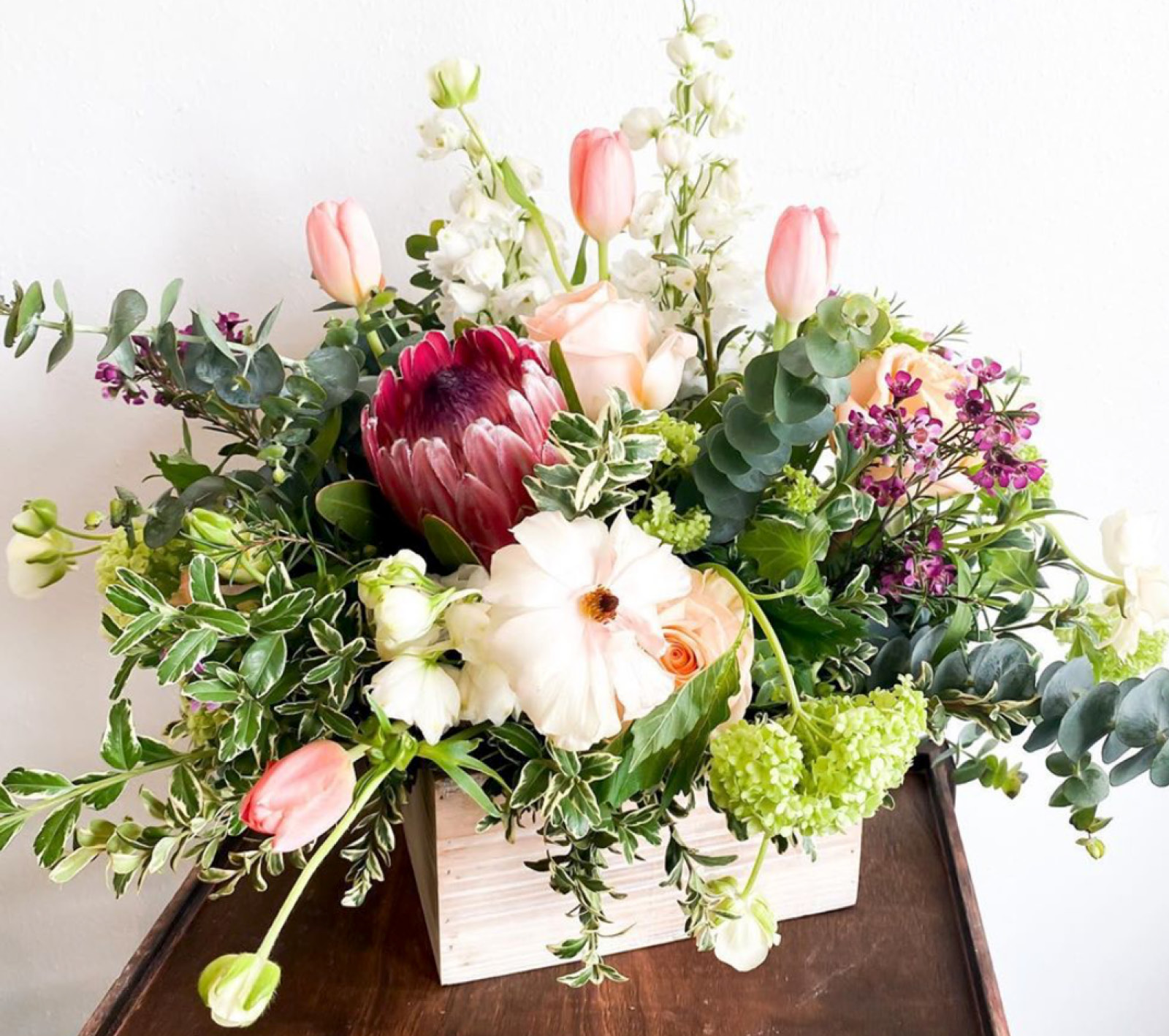
“Mentor” plays such a big role in modern-day business jargon. Tell me about your mentor.
It was Jen Hansen, who started the self-care and bath emporium, Eden, in the East Village. She sadly passed away a few years back, but she played an important role in my success, specifically the confidence that pushed me to the next level. Jen asked me to do a pop-up in her store for Valentine’s Day. I was honored and blown away that she would allow me to sell my flowers in her store. Everything that day sold out, and that’s how word spread that I was a real flower company. Before that, I was a package deal—flowers + event planning. But when I went into Eden, the buzz began, and I knew that I could focus on flowers as a separate part of my business.
I started looking for real estate, and eventually found a spot on Ingersoll, where I’ve been located for two years now.
Jen is responsible for helping me come up with the name, Wildflower. I really looked up to Jen and owe so much to her. I was obsessed with what she brought to Des Moines. She offered the most random, beautiful merchandise. I was just a customer of hers, but we became friends. Everything has turned out for me as she said it would. She wanted me to share what I wanted to say aesthetically.
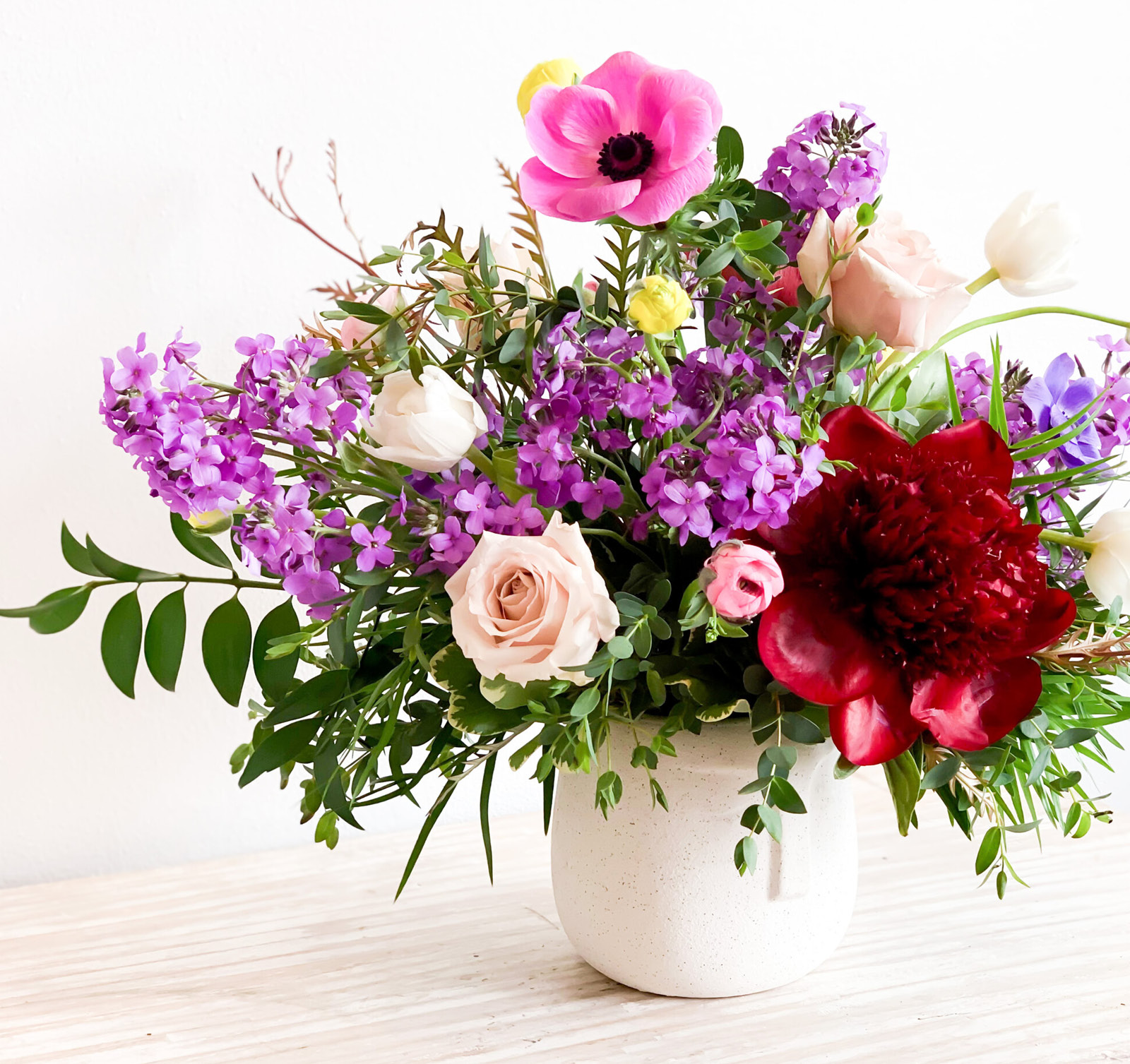
For decades, flowers have been classified as a sentiment, not necessarily as a form of artistry. How is that different now?
The industry has shifted from merely a delivery service for birthdays and funerals, to a vehicle that represents the artist’s creative eye. And I use so many parts of life as my creative outlet from the way that I decorate my home, to the way I dress my children, to what I cook. It’s just a part of me and the medium that chose me. I think that the floral industry started to change when weddings elevated to be atmospheric with every detail sharing a common vibe. Prior to that, talk of wedding design sounded like, “what are your colors?” Martha Stewart led the bride to consider the whole visual perspective of the event and weddings became more elegant.
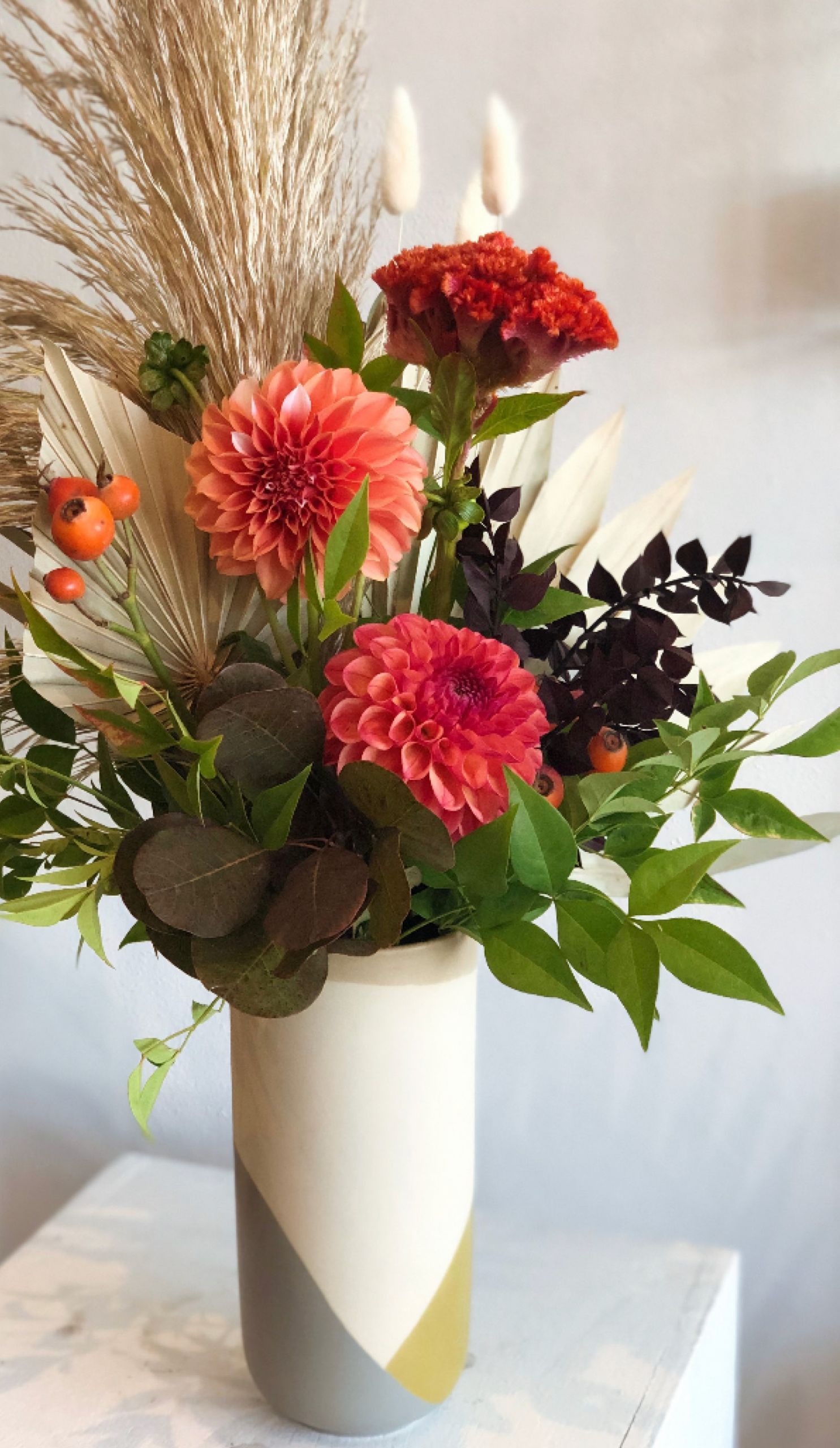
There is a bit of a DIY platform for flowers. People now like to dabble with flower arranging the same way that they would with paint and a canvas. Why do people turn to flowers to show their personal creativity when they don’t go to a floral designer?
It’s interesting. When you visit large cities both within the United States and abroad, you see wonderful markets on street corners with flowers to buy and take home. That’s more difficult in the Midwest, where our climate doesn’t always cooperate with the needs of fresh flowers. Instagram and social media have made us more aware. Because the flowers that are available at grocery markets have gotten so good, it gives the consumer the opportunity to play around with flowers herself.
But let’s be honest. There’s a big difference between picking up and playing around with a few hydrangeas or bunch of tulips from a Saturday morning market run, and what you design and deliver. When should people turn the flower arranging over to you?
When they want something that is special and created specifically for someone whom they want to leave a lasting impression., My team uses its artistry to execute that. It’s a different exercise than cutting a few stems down and placing them in your go-to vase. We think about containers. We think about evoking a certain emotion. We form the palette. Our vision involves so much more than cutting stems and putting them into water. My goal is quality and artful design. I want all of our recipients to receive a special event in a vase.
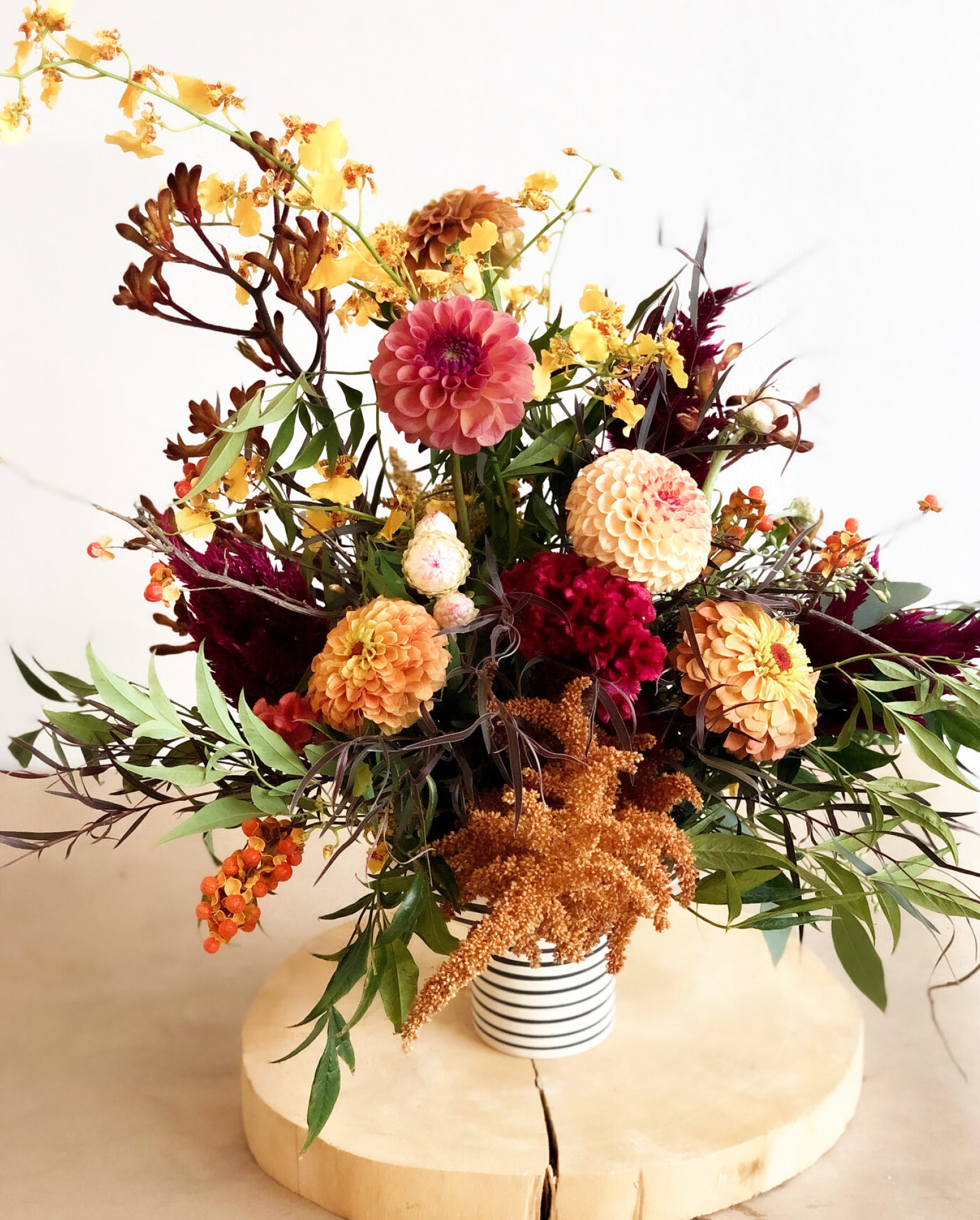
How would you describe your aesthetic?
My aesthetic depends. We want to be known and branded for a specific look. Our knee-jerk aesthetic goes to organic and hand-picked. Simple containers that are pottery or ceramic versus see-through glass, colored glass, or baskets. The container lends to the overall package, making the arrangement so much more than the flowers. I want to deliver something that is boho, hippie, and free-form. I like a classic, all-rose bouquet of light colors instead of conventional red roses. When you develop your brand with consistency, we begin to shape the client wants and expectations. And that’s when they trust to us to exercise creativity. They understand the quality and attention to detail.
We live in a time that’s about getting rid of the “stuff” that accumulates within our homes. Decluttering, reducing our footprint, and above all, making memories. Flowers really embrace that idea, after all, they aren’t going to live forever. Give me your thoughts on flowers and why they are worth it even though they don’t last for very long.
It’s temporary beauty, but something truly amazing. Not solely a flower arrangement, but a work of temporary art that’s been commissioned especially for someone. People understand that flowers are about a moment and not meant to last forever. What we create is about sparking a certain emotion, a chemical reaction that can be joy, happiness, or comfort. To receive an arrangement that truly speaks to the recipient is always what I want to deliver. Thoughtful design is what touches people. It’s easy to get trapped on the hamster wheel of less expensive flowers and more of them. What we do is different and offers a unique aesthetic, not just flowers in a vase. In the end, it’s about bringing nature into the home, and that always feels good.
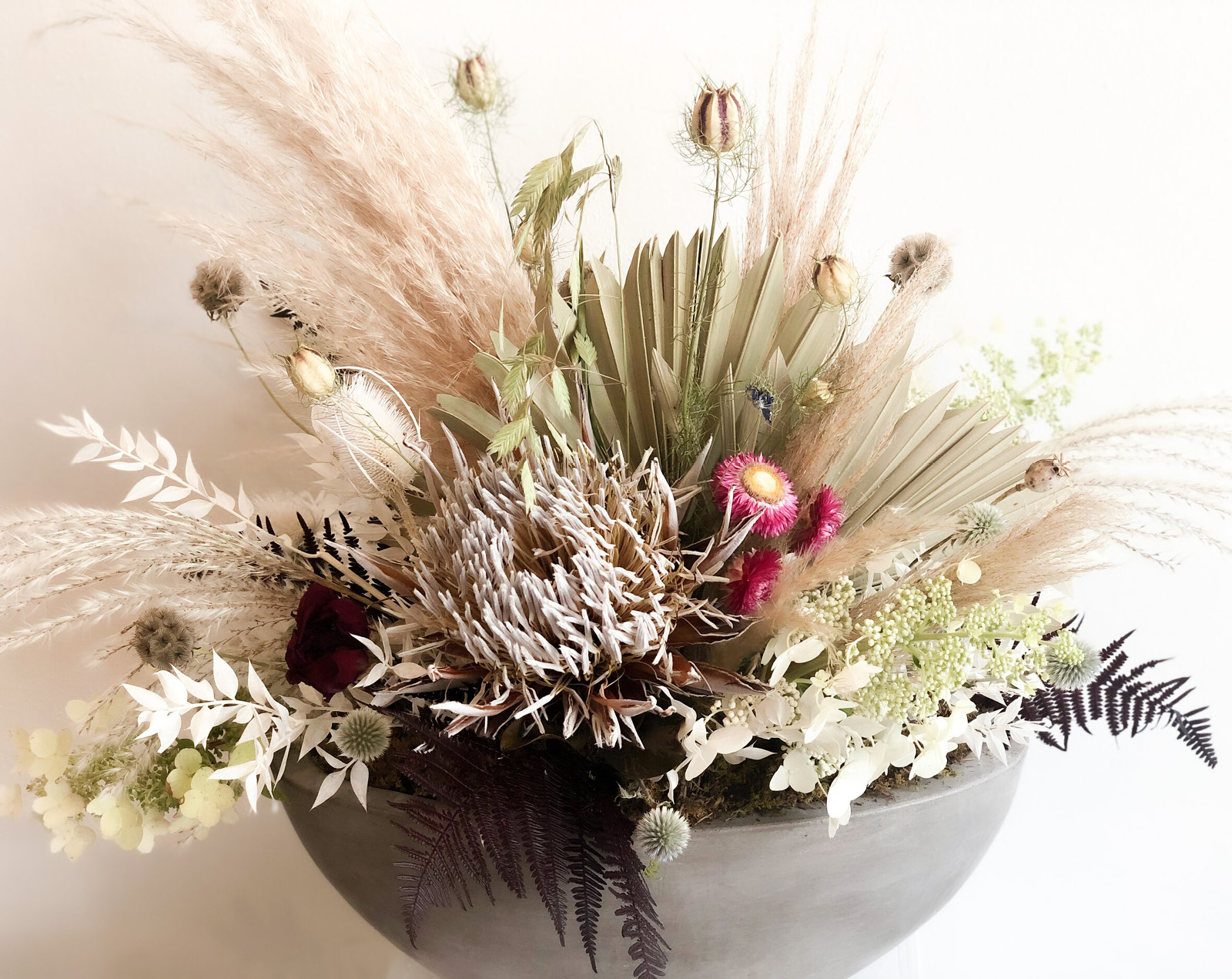
How do people communicate what they want from you? I find that so many people have difficulty articulating their creative needs. They don’t necessarily know or understand the vocabulary.
It’s not important that our customer knows an alstroemeria from a lily from a gerbera daisy. That’s not how I design. Sure, it’s important to tell me if your grandmother is especially fond of peonies or roses, but I like a different type of descriptor. I’m regularly training my customers about how to have conversations about design. In the case of flowers, I want the sender to tell me about the person and her environment, not about the flowers that they think belong in that environment. My favorite client is the one who allows us to be creative on her behalf. I don’t love micromanaged arrangements, rather client freedom.
We can’t talk about flowers without talking about Instagram and social media. Tell me how it’s added to your success?
Well, social media is not my first “know.” I didn’t grow up with it. I definitely feel like I’ve missed some things. It’s been an amazing tool, but I think there is a happy medium. Instagram is one great platform. But I also rely on my events, where there are a couple hundred people who can witness what I do in-person. I’ve hired someone to do my social media, so we are constantly engaging and telling our visual story. So much of our busines comes from Instagram, because we can control orders by what we post and how often.
Social media is crucial to wedding planning. Brides-to-be expect to see Instagram accounts and your visual statement. It shows that you are reputable. We have a fan base. We have followers. And the best part is our customers buy our flowers to use on their own Instagram accounts!
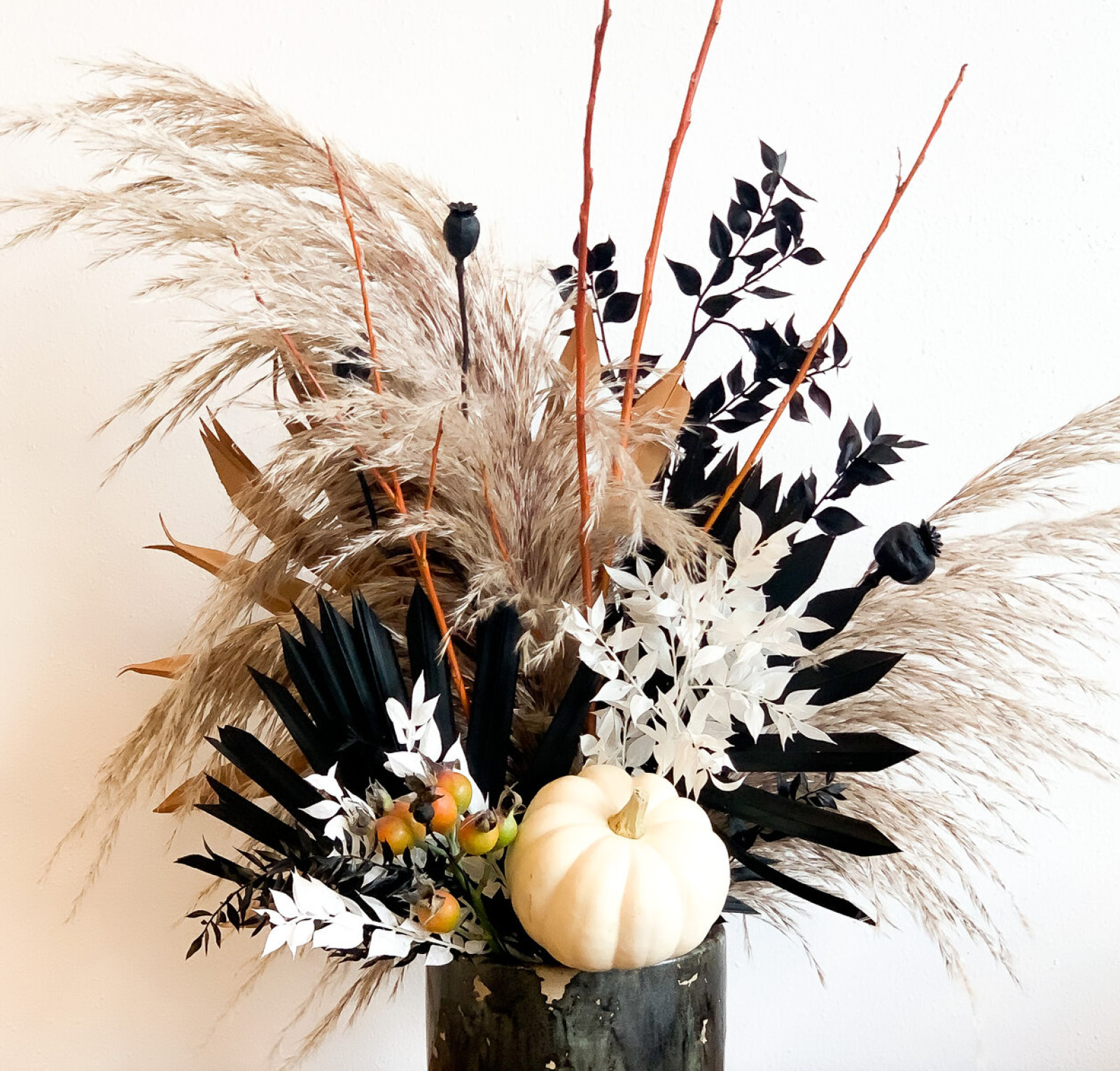
Starting a business is a huge undertaking. How do you feel about everything now that you are really into it? And let’s be honest. At this point in the game, when people around town know that a delivery from Wildflower is going to arrive at their home, they have to be pretty thrilled. You are someone that everyone wants to see!
Thank you. This has all been a surprise to me. Out of necessity, I found my calling. Working with flowers and planning events is my passion, and the best kind of work that I could imagine doing. I never saw myself running my own shop. Early on, I thought of myself as more of an under-the-radar person. I’m so grateful to how receptive my clients and the community have been. The storefront has become my love and has given me a platform that I never thought would be understood. It’s grown into a place that people depend on, and they come to us knowing that we will do a good job for them.


